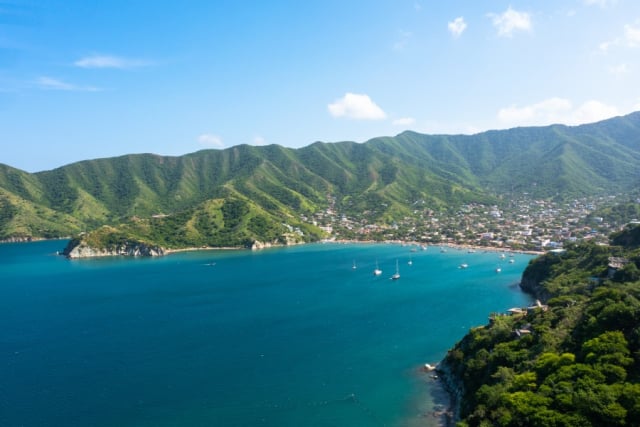Discovering Taganga: Maritime Treasure of Santa Marta
On Colombia's warm Caribbean coast, near the historic city of Santa Marta, lies Taganga, a small fishing town that has captivated travelers with its authentic charm and rich maritime heritage. In this article, we will venture into the deep waters of Taganga's shipping history, explore the vitality of its fishing economy, and discover how this community has navigated modern challenges while preserving its unique cultural identity.
A Glimpse into the Maritime History of Taganga
Taganga has its roots in the pre-Columbian era, when it was inhabited by the Tayrona indigenous people, who took advantage of the abundant marine resources of the region. With the arrival of the Spanish conquistadors in the 16th century, the area became a strategic point for maritime trade and fishing. Over the centuries, maritime activities have been the central axis of Taganga's economic and cultural life, shaping its identity and social dynamics.
The Fishing Fleet: Tradition and Adaptation
Taganga's fishing fleet is diverse and dynamic, reflecting both tradition and adaptation to modern demands. Traditional boats, known as "lanchas", are essential to the daily life of local fishermen. These boats, typically built of wood and decorated with bright colors, are not only used for fishing, but are also used to take tourists to explore the crystal-clear waters and nearby coral reefs.
The construction of these boats is an art passed down from generation to generation. Local craftsmen use ancient techniques to build robust, durable boats that can withstand the changing conditions of the Caribbean Sea. This artisanal tradition not only sustains the local economy, but also preserves invaluable cultural heritage.
Tourism and Marine Conservation
In recent decades, Taganga has emerged as a popular destination for ecotourism and sustainable tourism. Tourists visit the area to explore the coral reefs and rich marine biodiversity that characterizes the region. Activities such as diving and snorkeling allow visitors to immerse themselves in a vibrant underwater world full of life. However, this tourism growth has also posed challenges in terms of environmental management and marine conservation. The community has actively worked to implement responsible tourism practices that protect the area's fragile ecosystems and promote sustainable development.
Challenges and Opportunities
Despite its natural charm, Taganga faces several challenges. Tourism growth can negatively affect the daily lives of local residents and environmental sustainability. Furthermore, the preservation of Taganga's cultural identity in an increasingly globalized environment is crucial to maintaining its authenticity and uniqueness.
The balance between environmental conservation and sustainable economic development is a priority for Taganga. The community works closely with environmental organizations and local authorities to implement responsible fishing practices, waste management and protection of marine ecosystems. In addition, the use of renewable energies and the reduction of the carbon footprint are encouraged to minimize the environmental impact of growing tourism.
Maritime Culture and Traditions
Taganga's maritime culture is reflected not only in its boats, but also in its festivities and rituals associated with the sea. Local fishermen celebrate ancient traditions that honor the gods of the sea and give thanks for good fishing yields. These celebrations, which include traditional dances and religious ceremonies, show the deep spiritual connection the community has with the ocean and its resources.
The Cuisine and Gastronomy of the Sea
The gastronomy of Taganga is closely linked to local fishing. The town's restaurants offer fresh and delicious dishes prepared with fish and seafood caught that same day. Visitors can enjoy fresh ceviches, fried fish with ripe plantains, and a variety of seafood prepared according to traditional recipes that have been passed down from generation to generation.
Education and Community Empowerment
In addition to its focus on environmental conservation, Taganga is also investing in education and community empowerment. Local programs offer training in maritime skills, sustainable fishing techniques and business management to youth and adults interested in working in the fishing and tourism industries. These initiatives not only strengthen the local economy, but also ensure that future generations can preserve and continue Taganga's rich maritime tradition.
Future and Sustainability
Looking to the future, Taganga faces the challenge of balancing tourism development with the conservation of its natural resources and the preservation of its unique cultural identity. The community is committed to finding sustainable solutions that allow Taganga to prosper economically while protecting its valuable marine ecosystems and keeping its ancient traditions alive.
In conclusion, Taganga is not only a tourist destination but also an example of how communities can navigate modern challenges while preserving and celebrating their cultural and maritime roots. By honoring its history, investing in sustainable practices, and encouraging community participation, Taganga positions itself as an inspiring model for responsible tourism and cultural development in the Caribbean region of Colombia.


